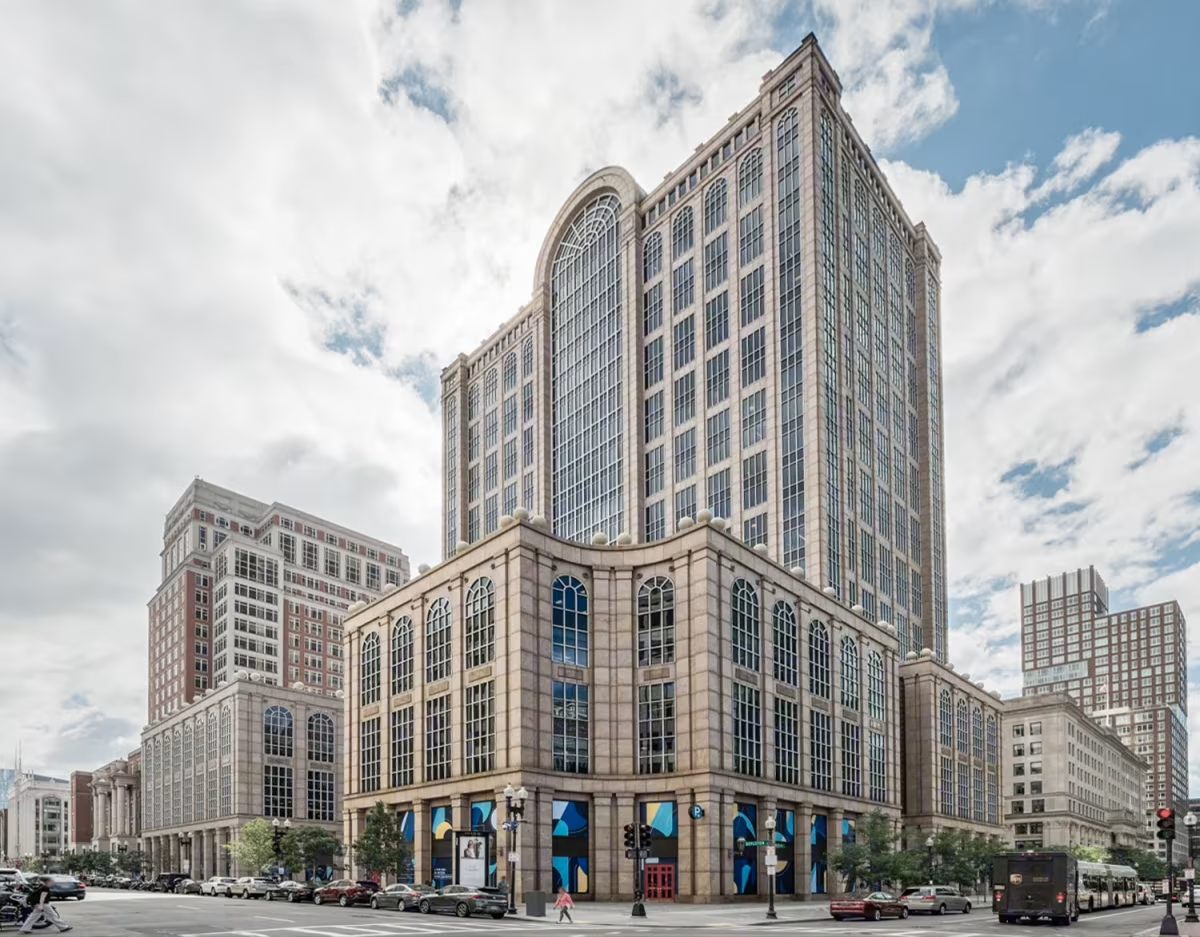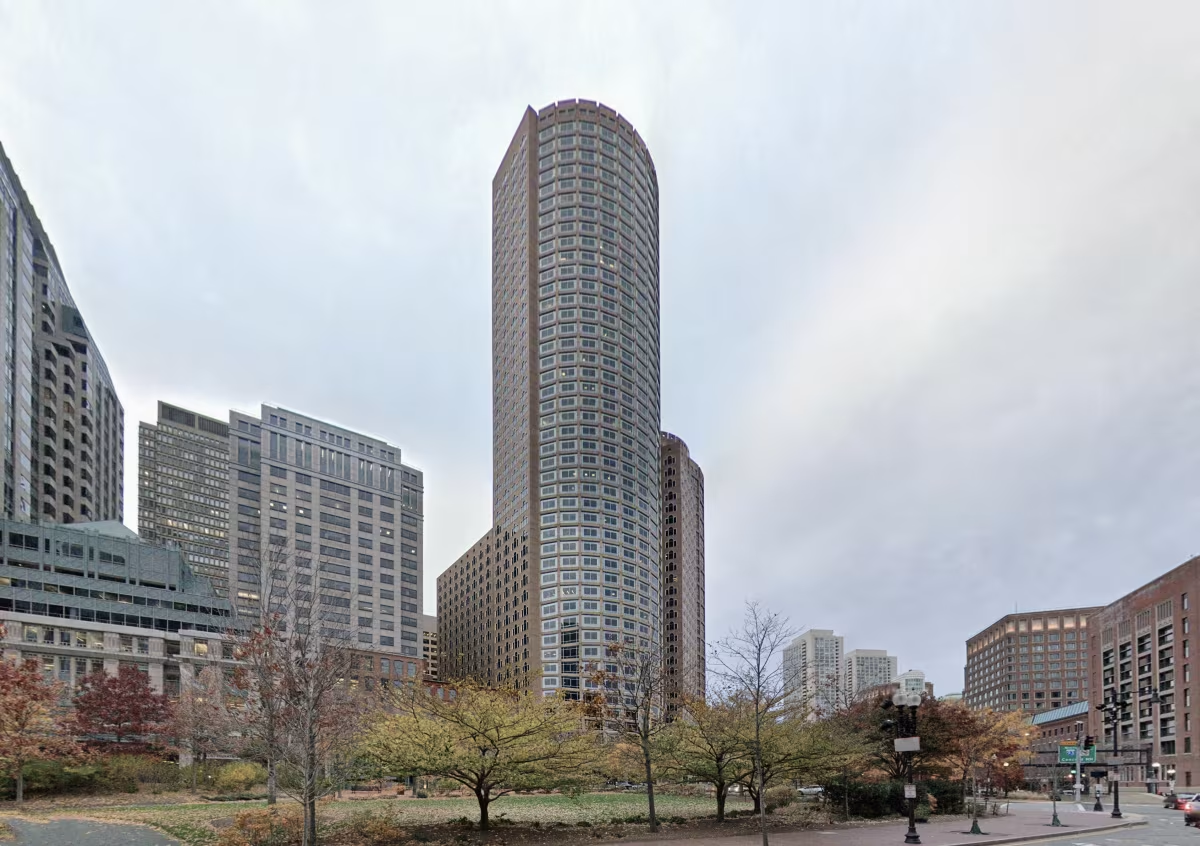500 Boylston Street vs One International Place Building


Comparing the 500 Boylston Street and the One International Place Building is interesting because they both stand in Boston, MA, and were completed within 2 years of each other, but they were designed by different architects.
This offers a unique glimpse at how rival designers approached projects in the same city during the same era.
Height & Size
The One International Place Building is clearly the larger tower of the two, both in terms of height and number of floors. It rises to 600ft (183m) with 46 floors above ground, while the 500 Boylston Street reaches 364ft (111m) with 25 floors above ground.
Of course, each project may have faced different briefs or regulatory constraints, which we don't really know about and could also explain the outcome.
Architectural Style
Both the 500 Boylston Street and the One International Place Building were designed in line with the aesthetic conventions of the Postmodernism style.
At the time, this style was at the height of its popularity. So both Philip Johnson/Burgee Architects and Johnson/Burgee Architects followed what was in many ways expected of them, producing designs that fit comfortably within contemporary architectural norms, rather than breaking with convention.
Uses
Both the 500 Boylston Street and the One International Place Building were designed to serve as commercial towers, and that has remained their main use since their completion, serving similar roles in the urban fabric.
Both towers provide significant parking capacity, with 500 Boylston Street offering 1000 spaces and the One International Place Building offering 400.
Structure & Facade
Both towers share the same structural solution, a Frame system.
A frame structure uses a grid of columns and beams to carry the building's loads. This frees the walls from structural duties, allowing for flexible floor plans and larger windows.
However, when it comes to the facade, both buildings use different approaches. The 500 Boylston Street uses a Modular facade, while the One International Place Building uses a Window Wall facade.
A Modular facade like the one seen in the 500 Boylston Street employs prefabricated panels, often mixing solid surfaces with smaller windows, while a window-wall facade like the one seen in the One International Place Building uses panels fitted between floor slabs, leaving slab edges visible.
| 500 Boylston Street | One International Place Building | |
|---|---|---|
| Philip Johnson/Burgee Architects | Architect | Johnson/Burgee Architects |
| 1989 | Year Completed | 1987 |
| Postmodernism | Architectural Style | Postmodernism |
| Commercial | Current Use | Commercial |
| 25 | Floors Above Ground | 46 |
| 111 m | Height (m) | 183 m |
| Frame | Structure Type | Frame |
| Steel | Vertical Structure Material | Steel |
| Poured Concrete Over Metal Decking | Horizontal Structure Material | Reinforced Concrete |
| No | Facade Structural? | Yes |
| Granite, Glass | Main Facade Material | Glass, Granite |
| Hines Interests Limited Partnership | Developer | The Chiofaro Company |
| Le Messieur | Structural Engineer | McNamara . Salvia |
| MA | State | MA |
| Boston | City | Boston |
| 500 Boylston Street | Address | 100 Oliver Street |